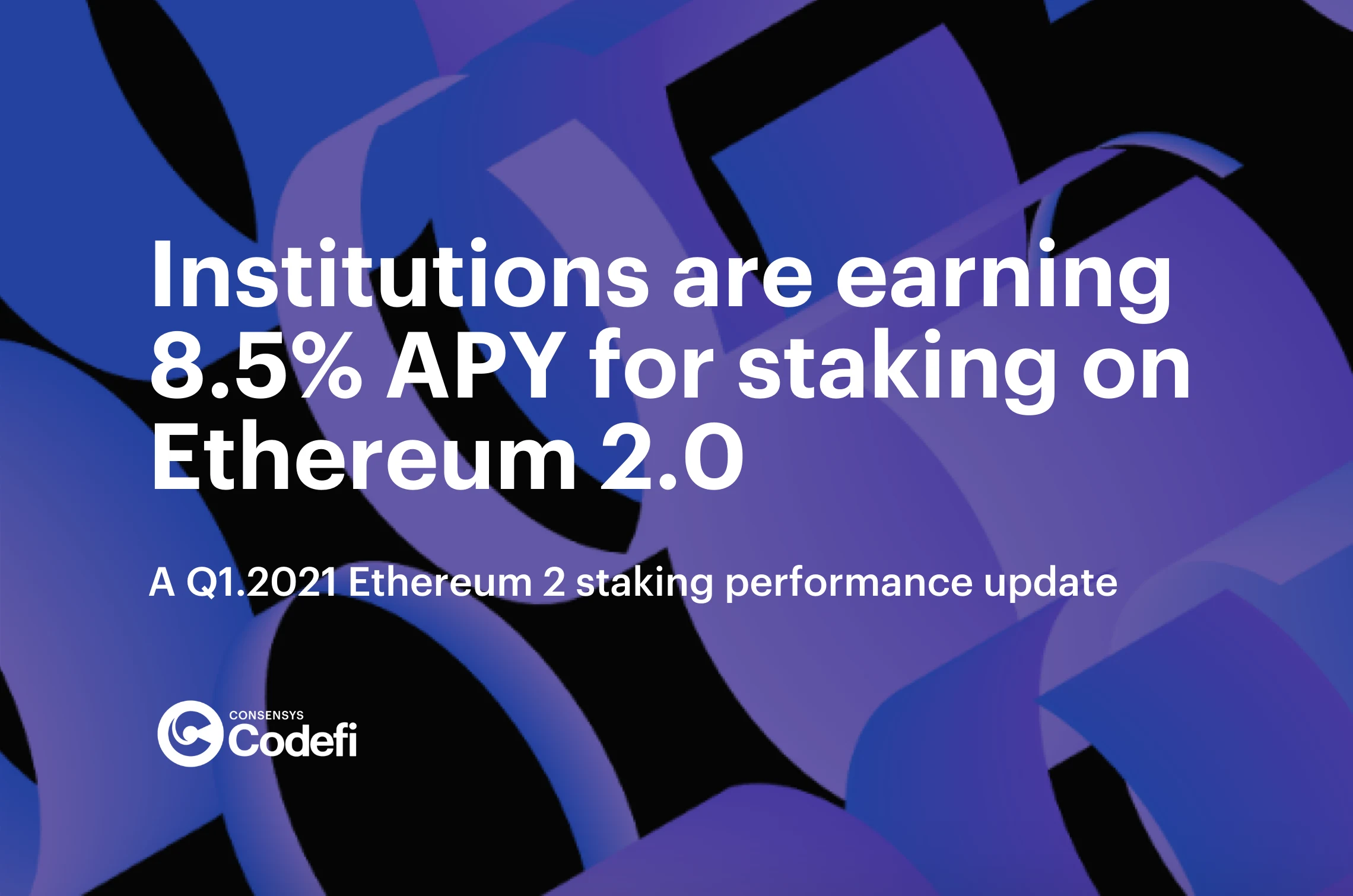Since the launch of the Beacon Chain in December 2020, 117,210 validators have staked 3,750,540 ETH—today worth over $7.8 billion USD—to secure the network. While staking rewards for early participants reached 9.9% APY in January 2021, today they amount to ~8.5% APY as the network welcomes more validators.
Alongside the journey to Ethereum 2, several other narratives caught our attention in Q1: The DeFi ecosystem saw skyrocketing growth, and interest in NFTs exploded past the crypto realm, dominating even mainstream headlines.
The effect of these simultaneous storylines, coupled with the lack of liquidity in Eth2 staking, has resulted in a leveling off of new ETH staked to the Proof of Stake Beacon Chain. Despite new derivatives like stETH or Liquidshare’s DAI loans, research indicates that more individuals are opting to trade, yield farm, or invest in NFTs rather than lock their funds in Ethereum 2.

This trend contrasts sharply however, with the outlook of institutions. Cryptocurrency exchanges, funds, and custodians recognize that holding ETH bestows a powerful position within DeFi. As the Ethereum DeFi ecosystem grows, holding ETH will be integral to application operations and transaction execution. Institutions recognize that Eth2 staking (whether by running their own validators or by working with staking providers) still offers the lucrative opportunity of generating 8.5% annual yield on their ETH positions.
For institutions seeking to earn rewards by working with staking providers, this is the case for Codefi Staking and the Teku Ethereum Client:


Teku is the Eth2 client powered by Consensys, built by the team behind Hyperledger Besu, the leading Ethereum client for enterprises. It outperforms others in the market because it is the only client built to meet institutional needs and security requirements.
Codefi Staking relies on Teku. Once other clients achieve institutional-grade standards however, the Codefi Staking team intends to integrate in order to ensure optimal attestation performance.

Codefi Staking performed effectively in Q1 for two reasons:
Two key infrastructure elements of Codefi Staking’s platform are provided by Teku and Web3 Signer; both of which are partner teams inside Consensys. Codefi Staking maintains a close relationship with these teams, and opens direct discussions when an issue arises in order to successfully resolve quickly.
The team runs the product in hyper care in order to achieve best customer outcomes. This means that when even the smallest detail doesn’t look right, it is addressed immediately. The team spends time looking through its infrastructure, software, logs, and transactions to assess the problem. This sometimes results in a missed attestation, but the team deems this risk acceptable in order to avoid escalation. “We focus on pebbles, rather than wait for the boulder,” jests Kuhan Tharmananthar, Product Lead of Codefi Staking. “This way, customers’ principal stakes are well-protected, rewards are maximized, and validator operations run smoothly.”
Institutions seeking to earn rewards by staking on Ethereum 2.0 should engage staking providers that have proven track records running optimal operations and generating maximum rewards.
Interested in receiving monthly updates on Ethereum staking performance and ecosystem news? Subscribe to the Codefi Staking Newsletter.

